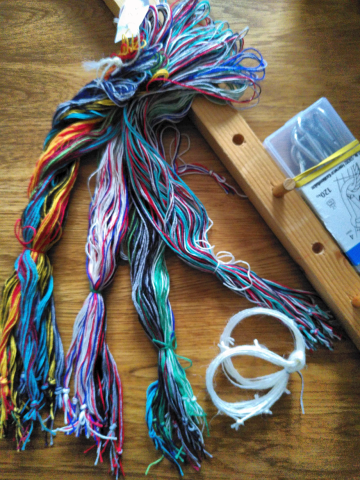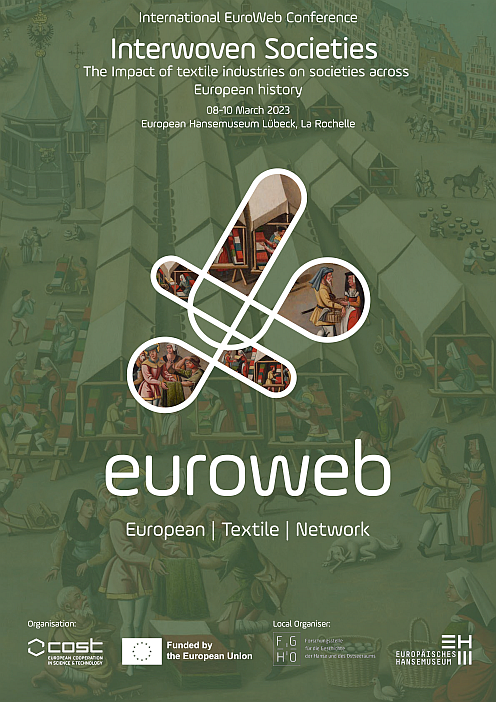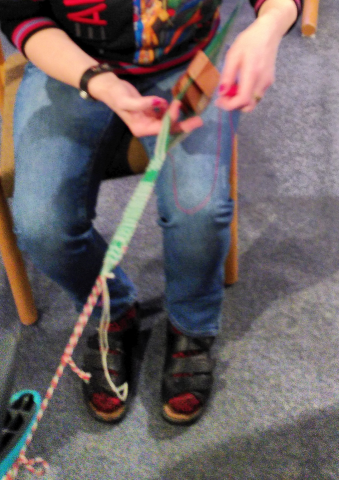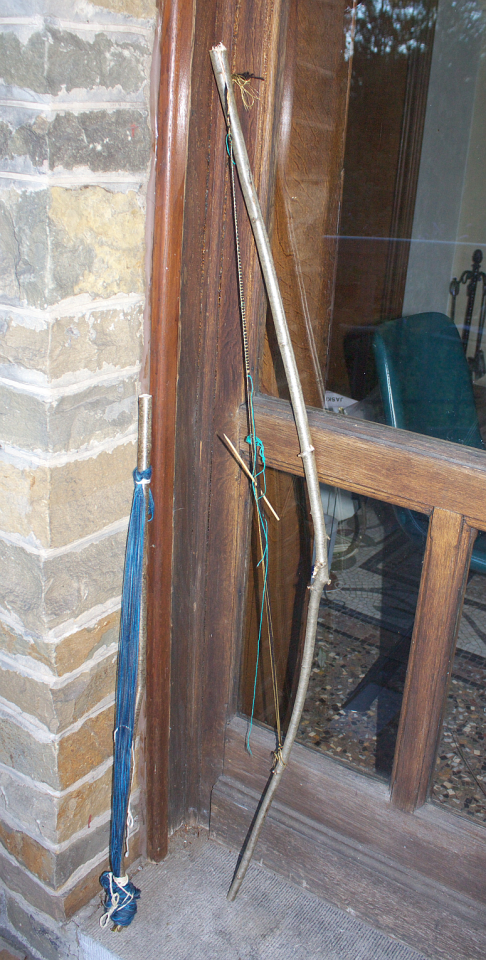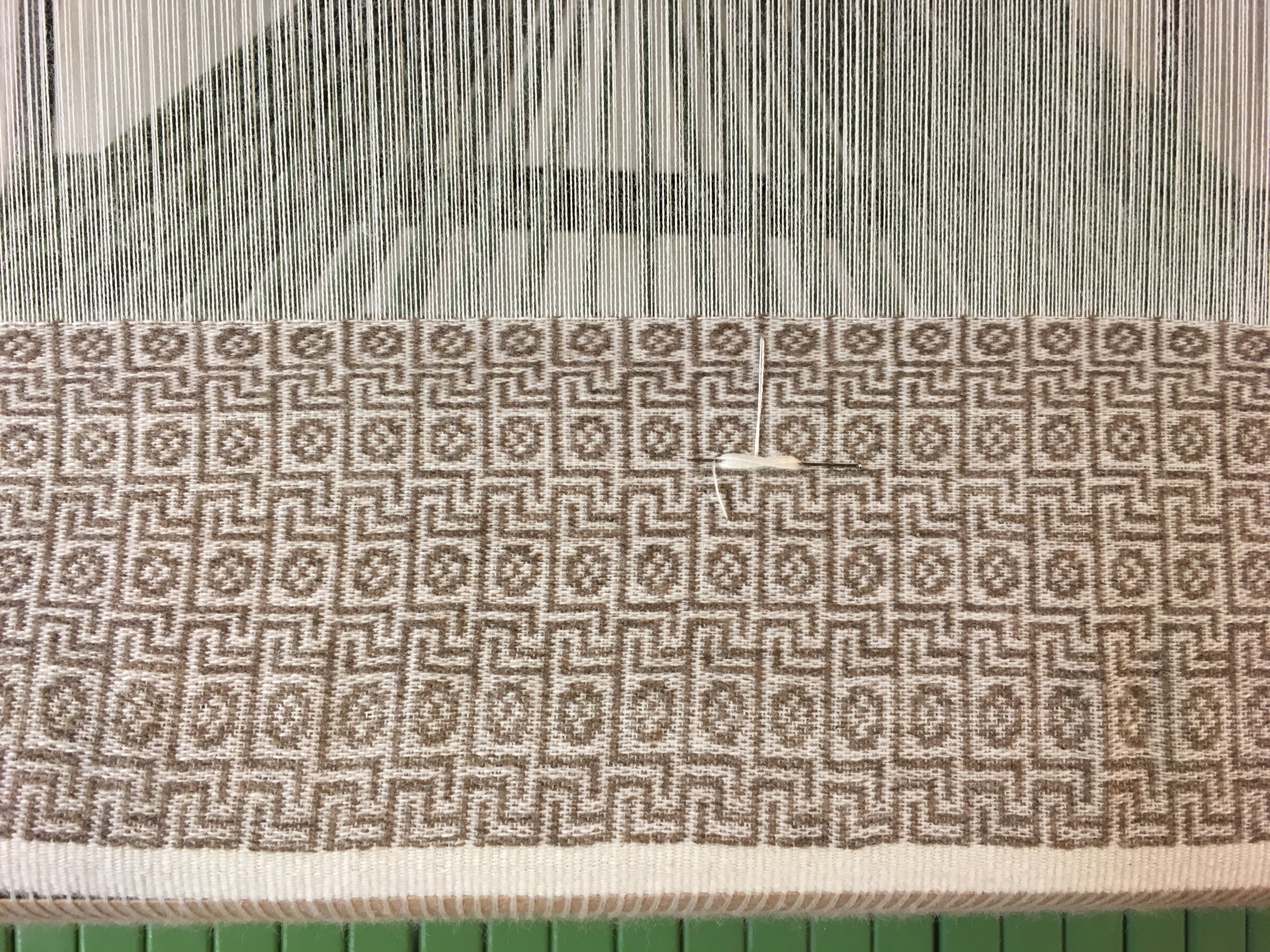I'm back from the weekend weaving workshop - which was (as these things tend to be) an enormous amount of fun, both for me and (according to their comments) the participants.
There was a lot of weaving done - quickly making centimeters on the bands on the first day. My weaving workshops always start with the very basics: Getting the hang of what different threading directions do, weaving stripes, the absolute basic principles on how patterns work. Then we do a little bit of doubleface to warm up, and then the fun starts.
That also means that the second is was devoted to more thinking and more looking at tablets, and more sorting things around, which slows down the weaving process. Let's say that it can be surprisingly hard to weave a simple monochrome surface... but all of my weavers did very, very well, and went away with a band and a learning curve that they can really be very proud of.
And I actually remembered to take a few photos! Though most of them are on a different camera than this very, very blurry one that I snapped with my phone, and have not transferred yet:
I did not promise twill in the workshop description, on purpose, but I usually get signals very quickly if the group, more or less, would like to try it. (They usually do.) And if that's the case, I try to get things arranged so everyone who wants to can get a little bit of the twill experience.
That was also the case on the weekend, and we did manage to progress into twill weaving for the last part, to my great pleasure and to the great spinning of heads (in German you say "rauchende Köpfe", as in the brain is working so hard that smoke curls up from the head) on the weavers' side.
I love weaving twill on tablets, and I really love teaching it. Twill is hard, though. You have to keep track of a lot of things simultaneously, and there's a stack of tablets that needs to be handled delicately and correctly, so some of your capacity is already taken up by the fine motor skills demands, and then (if you've done tablet weaving beforehand) there are things you always did differently and you have to do my way now (because of reasons, not because I like to pester people) so that eats even more of your brain or (if you haven't done tablet weaving beforehand) there are so many new movements that it's also eating up brain capacity, and that together means that it is getting hard to count to two.
There is concentrated deep silence during most of the time when I'm running a tablet weaving workshop. I have actually tried it once, where there was no carpet on the floor, and yes, you could hear the pin drop. That concentrated silence is even more obvious if twill is requested by the participants, though then you sometimes hear sighs, quiet mumblings (to keep track of the sequence in which things should be done) or, if something has gone properly wrong, a little cry for help or assistance.
As is also usual, only a part of the group went on to venture a little deeper into twill after the first bit of it. Twill weaving is not for everyone - you have to like this kind of brain-bending mental gymnastics, and some people do, and some people don't, and that is absolutely okay. The system I use is all logical throughout, and there's a stack of rules and little hacks and standard procedures that really help, but the challenge in the workshop is that you have to remember all of them at the same time, and a weekend workshop always means that there is limited time to let each new standard really settle into the brain and the hands.
I'd really like to try and teach tablet weaving for a full week some time, and see what could be done with a bit more practise before progressing to the next steps... but that would probably have to be at some weaving school or special event. Who knows, though - there's been so many interesting things and projects and jobs in the past that I'd never have dreamt of, the opportunity might arise at some place and some time.
For now, I have some notes to review, and some bits of my workshop script to tweak, a few little changes to make for the next workshop, and then I'll be waiting for the next opportunity to make some brain cells work very, very hard...




